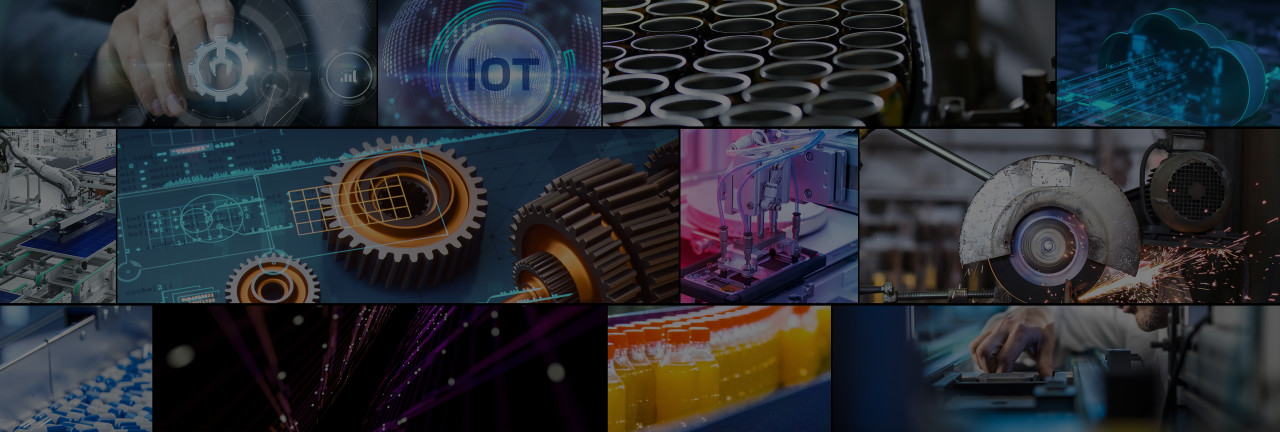Effective manufacturing workflows are all about doing things more efficiently - from the simplest tasks to the most complex. While this is an ostensibly simple concept, the increasingly interconnected, global nature of modern manufacturing workflows hides a number of challenges, with even the briefest period of downtime potentially costing tho...
From day-to-day consumer banking to high-profile asset and wealth management, the way we all access financial services is changing in ways that would have been inconceivable just a few years ago. Online banking is now firmly established, allowing customers to manage their money securely within a few clicks - anytime, anywhere and without the need to visit a branch. A 2022 survey revealed that the quality of the online experience was a key factor in 81% of adults' choice of bank1.
With fundamental shifts in consumer behaviour, changing economic conditions, and a rapidly evolving regulatory environment, it's a challenging but exciting time for the UK's retail sector, and technology has a key role to play. In particular, advances in IT and networking solutions are empowering retailers to enhance their operational efficiency, improve the customer experience, and retain their competitive edge in an increasingly online and interconnected world.
Like many longstanding institutions, Britain's world-renowned pubs are undergoing their own digital transformation journey, utilising leading-edge technologies to offer truly personalised experiences to patrons of all ages and backgrounds - from longstanding regulars visiting for their usual pint, to families looking for a meal, and young professionals working on the go. It's an exciting time for the sector as a whole, but at the same time, the drive for modernisation must not come at the expense of patrons' safety and enjoyment.
Now more than ever, organisations across the public and private sectors depend on seamless, secure, and high-quality communications. Even with an increasing range of channels having established themselves in recent years - including voice, email, video, and SMS - voice services remain a key part of how we communicate and collaborate.
The nature of AEC projects and the high volumes of sensitive data firms generate, transfer, and store on a daily basis make them a natural target for cyber criminals. Indeed, a recent Government study found that 5% of building firms have already fallen victim to some form of cyber-crime in the just a year, but that 26% of them still did not have adequate cyber security measures in place.
Like many fixtures of our lives, Britain's pubs were heavily impacted by COVID-19, with their familiar patrons unable to come in for a post-work drink, or meet with friends at the weekend. But while it was undoubtedly a difficult period for the industry as a whole, this great British institution did as it has always done, and adapted to suit its patrons' evolving requirements.
Although digital transformation amongst Legal firms has typically been comparatively slow compared to other sectors, the journey has picked up speed over the course of the last decade.
In the space of just a few short years, Artificial Intelligence (AI) has gone from being a somewhat niche field, to front and centre in the public consciousness. With the rise of ChatGPT and similar platforms, there is much speculation about where this technology is heading, and what its impact will be on our personal and professional lives. Indeed, organisations across numerous sectors are already exploring the different ways it can be utilised to reduce costs, optimise efficiency, and improve service quality.
The Finance sector has always been one of the most dynamic, rapidly evolving industries, and this shows no signs of changing any time soon. But while shifts in the landscape may well open new opportunities, they will also come with new challenges, and it is the organisations who are ready and able to face these head-on who will continue to thrive in the years ahead.
Manufacturing workflows are evolving at an unprecedented rate, and the trend shows no signs of slowing down. The increasing effectiveness and affordability of 'smart' technologies and the Internet of Things means IT and OT are increasingly interconnected, with increasing volumes of data flowing between sites and devices on an ongoing basis.
The past few years have been challenging for the global Manufacturing sector, with both Brexit and COVID-19 creating a wide range of operational disruptions whose impact is still being felt. Indeed, as recently as January 2023, we saw UK manufacturing shrinking for the sixth consecutive month1.












